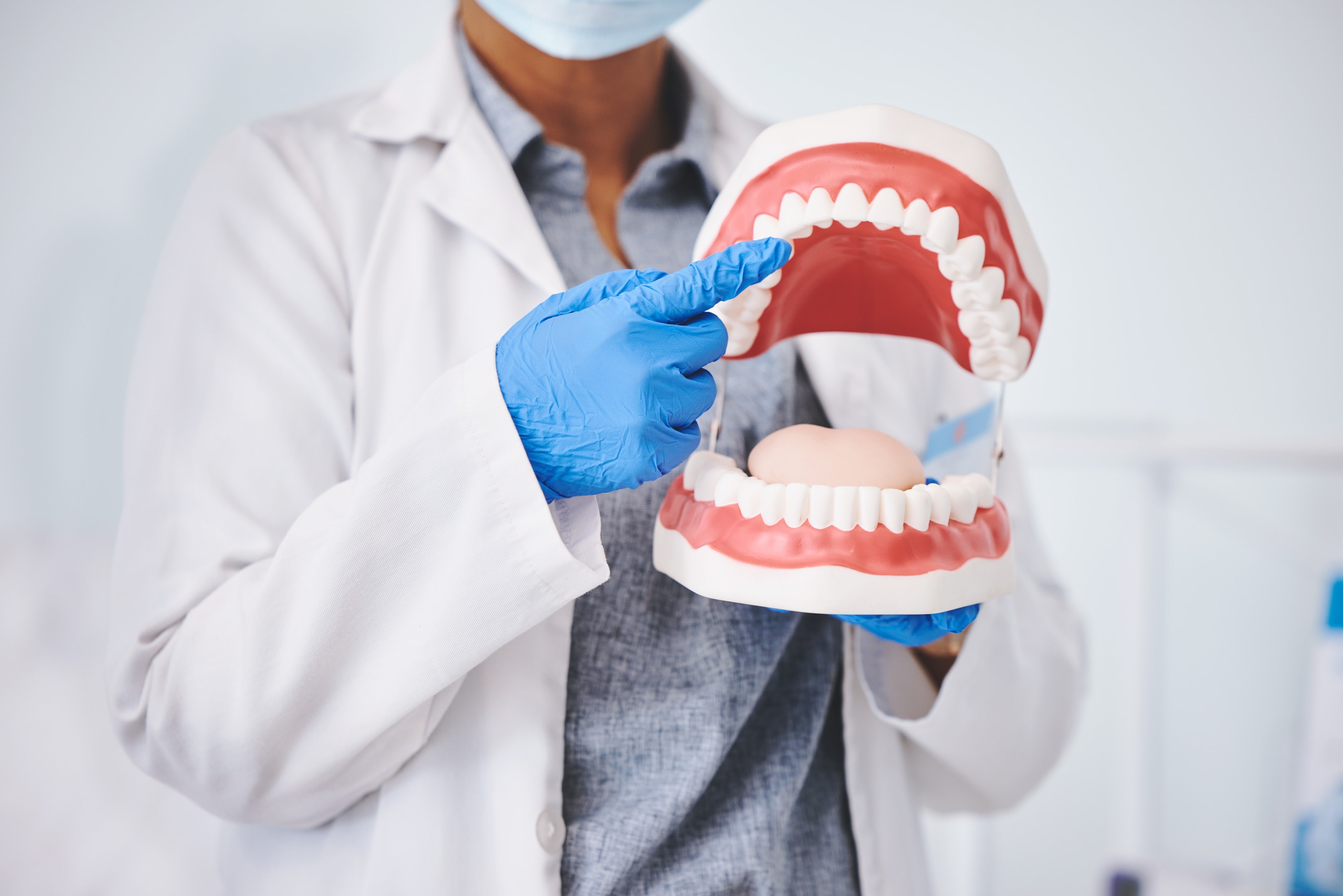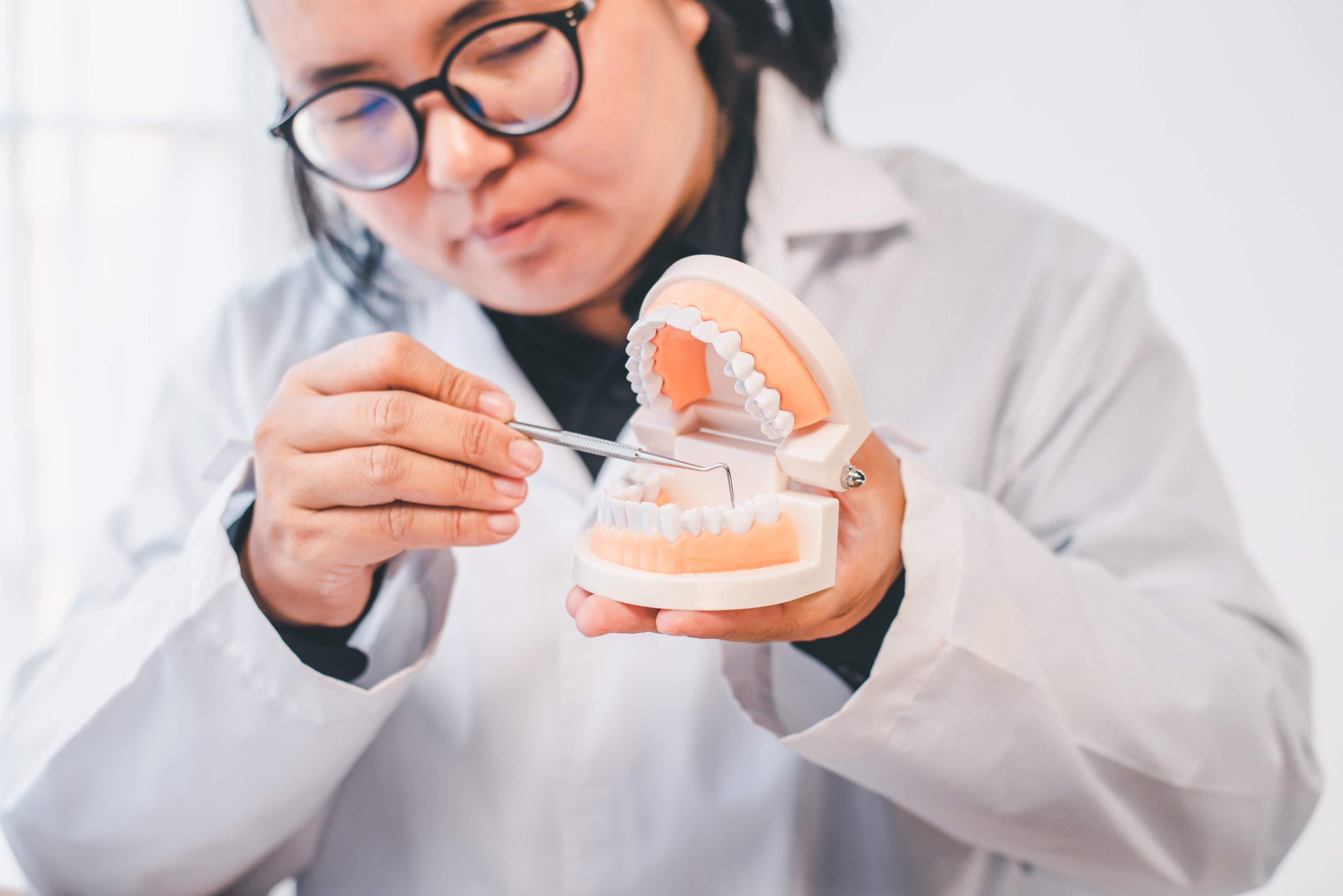
Imagine navigating a bustling city. Beneath the surface, hidden in the underground tunnels, lie the vital systems that keep the city running smoothly.
What is oral pathology? It’s much like that—it deals with the unseen aspects of our oral health, diagnosing and treating diseases that affect the mouth, jaws, and related structures.
Specifically, it is the specialty of dentistry and pathology that focuses on the nature, identification, and management of diseases affecting the oral and maxillofacial regions.
But what exactly is oral pathology, and why should you care?
Let’s delve into the world of oral pathology, exploring what it is, how it can affect people, and what it entails. By the end, you’ll have a solid understanding of this field of dentistry and how our team at South Calgary Oral Surgery can help you maintain optimal oral health.
Unveiling Oral Pathology: More Than Just a Mouthful

When it comes to maintaining a healthy smile, regular dental check-ups and good oral hygiene practices are just the tip of the iceberg.
Oral pathology dives deeper, focusing on the diagnosis and treatment of diseases affecting the mouth and surrounding areas.
This includes everything from benign conditions like ulcers and infections to more serious concerns like cancers and autoimmune diseases.
Oral pathologists are the detectives of the dental world, using their expertise to identify and manage these conditions effectively.
The Scope of Oral Pathology
What is oral pathology beyond just a simple definition? Oral pathology encompasses a wide range of conditions, including but not limited to:
-
Infections: Bacterial, viral, and fungal infections can wreak havoc on oral tissues, leading to conditions such as oral thrush, herpes simplex, periodontitis, and cold sores.
-
Autoimmune Diseases: Conditions like lichen planus and pemphigus vulgaris result from the body’s immune system attacking its own tissues.
-
Cancers: Oral cancers can affect the lips, tongue, cheeks, and throat. Early detection and treatment are crucial for improving outcomes.
-
Cysts and Tumours: These growths can be benign or malignant, necessitating careful evaluation and management.
How Oral Pathology and Oral Cancer Can Affect You

What is oral pathology to you? It’s not just a small concern—it can have profound impacts on your overall health and quality of life. Left untreated, oral diseases can lead to pain, difficulty eating and speaking, and even other health problems.
For instance, periodontal disease has been linked to cardiovascular conditions, diabetes, and respiratory infections.
This makes understanding and addressing oral pathology and various oral diseases not just a matter of dental health but a vital component of your overall well-being.
Recognizing the Symptoms
Awareness is the first step in tackling oral pathology. Common symptoms that might indicate an underlying issue include:
-
Persistent Sores or Ulcers: Sores that don’t heal within two weeks could be a sign of a serious condition.
-
Lumps or Swellings: Any unusual growths in the mouth or neck should be evaluated promptly.
-
Red or White Patches: These could be indicative of pre-cancerous changes or other pathological conditions.
-
Chronic Pain or Discomfort: Unexplained pain in the mouth, jaw, or face warrants professional attention.
-
Changes in Gum Tissue: Alterations in the gum tissue around the teeth can be a warning sign of oral pathology or cancerous growths.
The Diagnostic Journey: What to Expect
When you visit South Calgary Oral Surgery with concerns about what is oral pathology, our team of experts, including an oral pathologist, will guide you through a comprehensive diagnostic process. Here’s a glimpse into what you can expect:
Initial Consultation and Examination
During your initial visit, we’ll conduct a thorough examination of your mouth, head, and neck. We’ll discuss your medical history, symptoms, and any concerns you may have. This step is crucial for identifying potential issues and planning the next steps. Additionally, we encourage patients to perform regular oral cancer self-examinations for early detection.
Advanced Diagnostic Tools for Early Detection
To accurately diagnose what is oral pathology, we may use a variety of advanced tools and techniques, such as:
-
Biopsy: A small sample of tissue is taken for microscopic examination. This is the gold standard for diagnosing many oral pathologies, including serious conditions like oral cancer.
-
Imaging: X-rays, CT scans, and MRI can provide detailed views of the oral structures, helping to identify abnormalities.
-
Laboratory Tests: Blood tests and cultures can help detect infections and other systemic conditions.
-
Treatment Options: Tailoring Solutions to Your Needs

Once a diagnosis is made, our team at South Calgary Oral Surgery will work with you to develop a personalized treatment plan, ensuring all aspects of what is oral pathology are addressed. This plan may include medical treatment to manage oral diseases and head and neck pathology. The treatment approach will vary depending on the specific condition and its severity. Here are some common treatment modalities:
Medical Management
For infections and autoimmune diseases, medications such as antibiotics, antifungals, antivirals, or immunosuppressants may be prescribed. Oral and maxillofacial specialists, with their specialized training, are adept at managing conditions affecting these regions, including the identification and treatment of lesions and tumours in the head and neck. These treatments help to control the underlying condition and alleviate symptoms.
Surgical Interventions
Surgery may be necessary for removing tumours, cysts, or other abnormal growths in the oral and maxillofacial regions. Our skilled oral surgeons use state-of-the-art techniques to ensure the best possible outcomes with minimal discomfort.
Prevention: The Best Medicine

What is oral pathology without prevention? While not all oral pathologies can be prevented, adopting good oral hygiene practices and a healthy lifestyle can significantly reduce your risk. Here’s how you can take proactive steps to maintain your oral health:
Oral Hygiene
Brush your teeth twice a day, floss daily, and remember to use an antimicrobial mouthwash to reduce plaque and bacteria.
Regular Dental Visits
Schedule routine check-ups with your dentist or oral surgeon. These visits allow for early detection and management of potential issues related to oral pathology.
Healthy Lifestyle Choices
Avoid tobacco products, limit alcohol consumption, and eat a balanced diet rich in fruits and vegetables. These habits contribute to overall health and reduce the risk of oral diseases.
Conclusion: Prioritize Your Oral Health

In conclusion, what is oral pathology to you may be a question about a little-known field, but its importance is undeniable. Oral pathology is a critical field that addresses the hidden aspects of our oral health. By understanding what it is, how it can affect you, and what it entails, you can take proactive steps to maintain your health and well-being. At South Calgary Oral Surgery, we are dedicated to providing comprehensive care and support for all your oral health needs.
Remember, your mouth is the gateway to your overall health. Prioritize regular dental check-ups, be vigilant about changes in your oral health, and don’t hesitate to seek professional advice when needed. Together, we can ensure a healthier, happier smile for you.
If you have any concerns or questions about what is oral pathology, feel free to reach out to our team at South Calgary Oral Surgery. We’re here to help!






